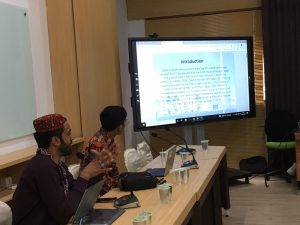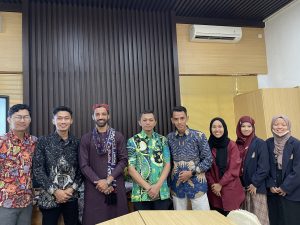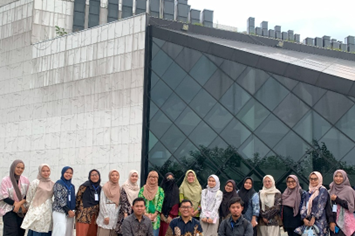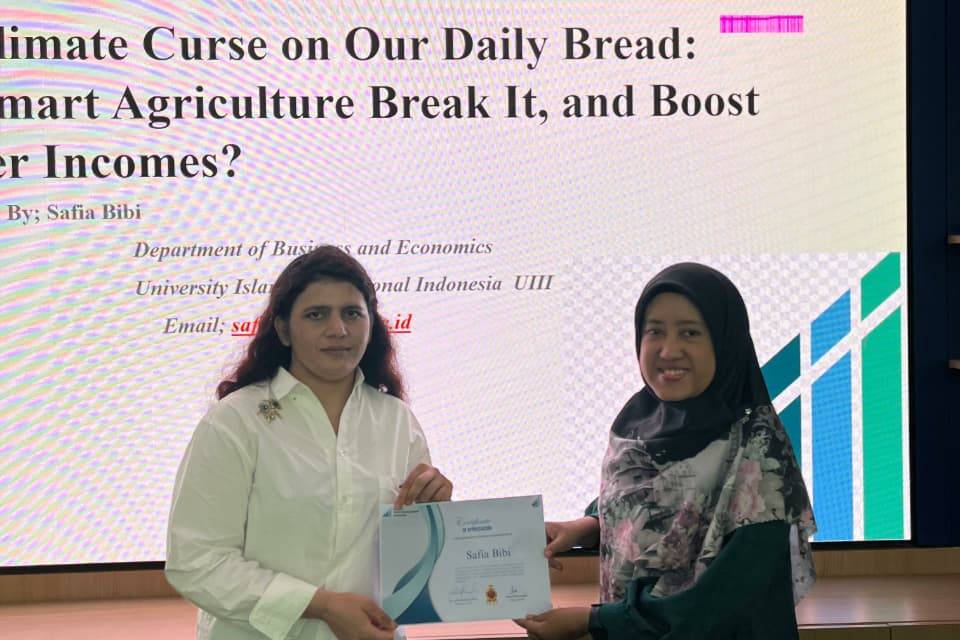
Islam puts a significant concern on overcoming unequal income distribution that causes poverty and other socioeconomic disparities. Zakat is a key instrument that opens people the way to consume more, and invest more while penetrating the urgency of community project realization. This equitable distribution of wealth through Zakat can only reach its objectives if properly managed, assessed, and developed. Management of Zakat has been evolving rapidly in Indonesia, Malaysia, and Saudi Arabia with various applications of laws and regulations for instance Zakat tax system, tax deduction, and online-based zakat collection. Safiullah Junejo, a master’s student of UIII FEB from Pakistan is curious to figure out how far zakat management in his country, particularly in the Khairpur district has been evaluated and improved.

His paper entitled “Assessing, Developing, and Proposing Zakat Management: A Case Study of the Khairpur District, Pakistan” was accepted to be presented in the 6th Panel Conference Jurnal Sosiologi Refelektif at FISHM, UIN Sunan Kalijaga, Yogyakarta. The conference under the theme “Contemporary Issues on Indonesian Muslims Society: Trends and Perspectives” presented him with the chance to elaborate on the authentic context of Zakat management in Pakistan, while critically exposing the motives of Zakat’s payment to the inhabitants there. Apart from that, he delivered that sustaining the effectiveness of zakat management requires the legality of Zakat managers’ existence along with the socialized SOP and innovation-open projects.

